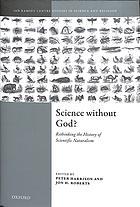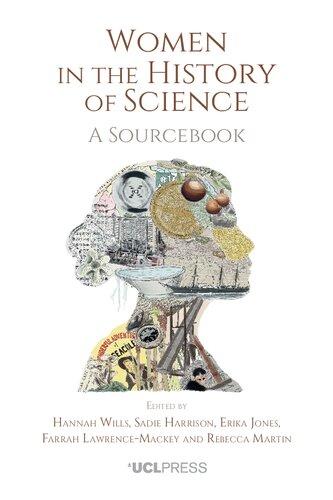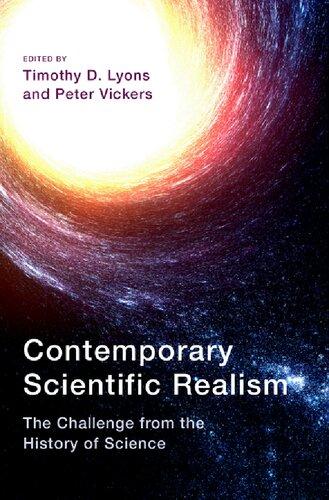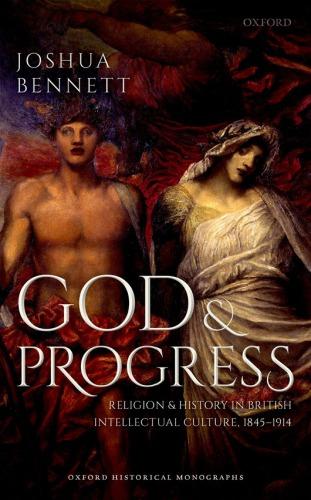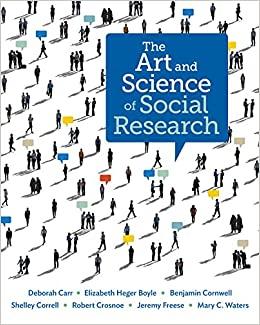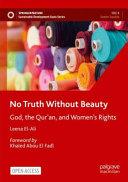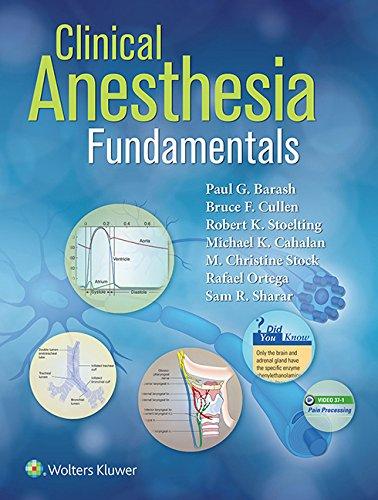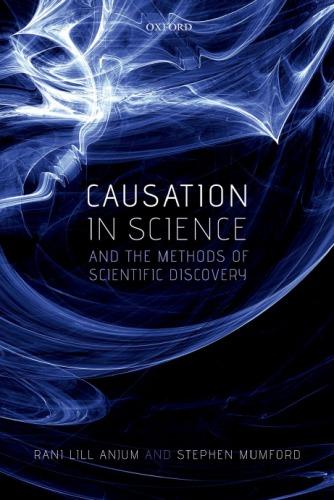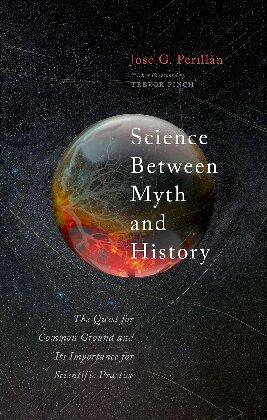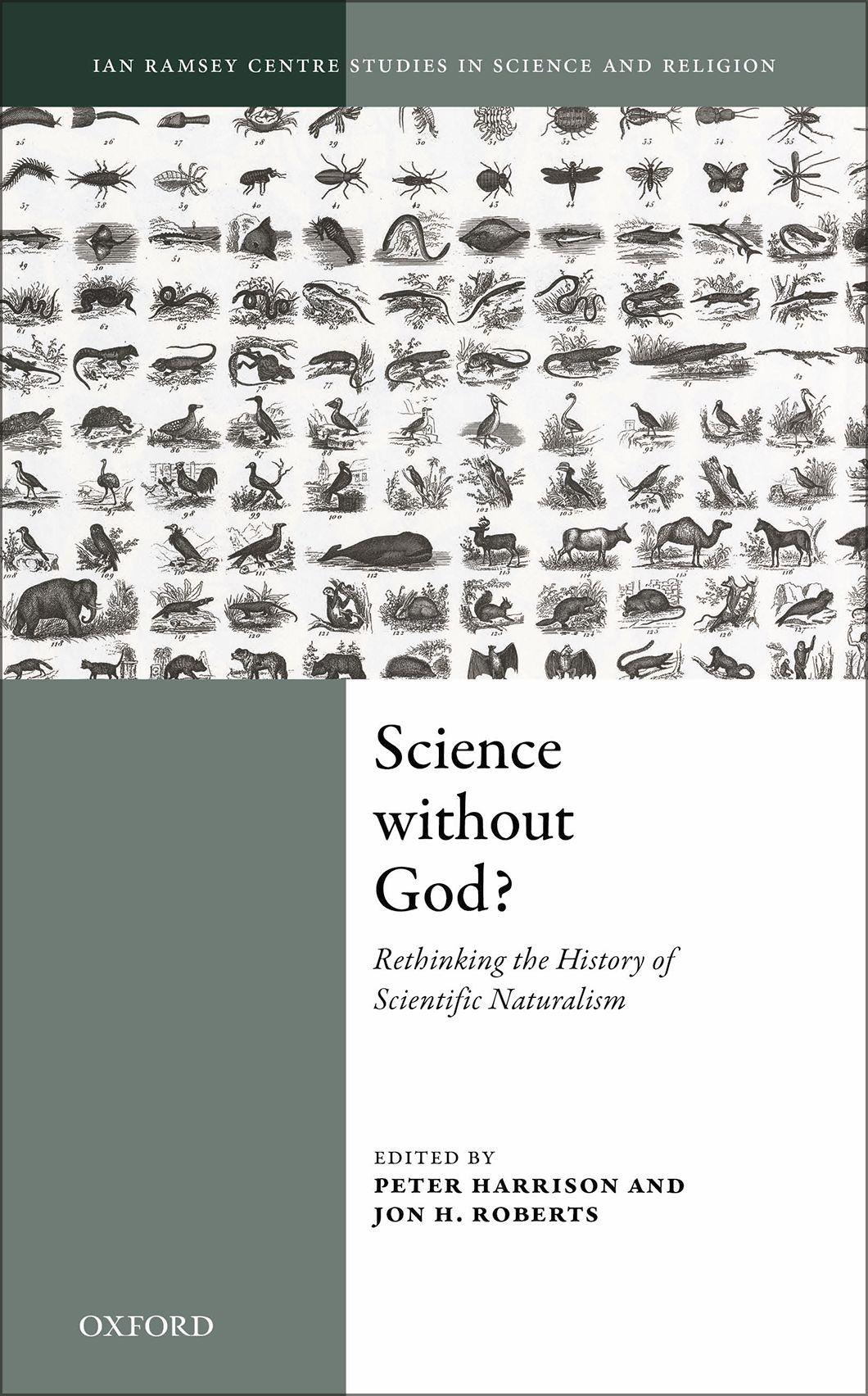Introduction
Peter Harrison
In 1922, Canadian philosopher Roy Wood Sellars confidently declared that ‘we are all naturalists now’.1 While Sellars’s announcement was perhaps a little premature, it is difficult to deny, almost one hundred years later, that commitment to some form of naturalism is the default position in virtually all departments of human knowledge. ‘Naturalism’, of course, can mean a number of different things. But what most forms of scientific naturalism have in common is a commitment to the methods of the natural sciences and to the reliability of the knowledge generated by those methods. As Sellars himself expressed it, naturalism is not so much a philosophical system as ‘a recognition of the impressive implications of the physical and biological sciences’.2 When we inquire further into what, specifically, is naturalistic about the sciences, the simplest answer is that their methods involve a rejection of supernatural or spiritual explanations and a focus on what is explicable in terms of natural causes, forces, and laws. Naturalism and science thus go hand in hand. This volume is about that partnership, and its long and intriguing history.
THE VARIETIES OF NATURALISM
While the subject of this book is the history of scientific naturalism, it is helpful to begin in the present with contemporary debates about naturalism and its relation to the natural sciences. Modern discussions of scientific naturalism
1 Roy Wood Sellars, Evolutionary Naturalism (New York: Russell and Russell, 1922), p. i.
2 Sellars, Evolutionary Naturalism, p. i. Sellars’s son, Wilfred Sellars, put it even more starkly: ‘science is the measure of all things’: Wilfrid Sellars, Science, Perception and Reality (London: Routledge, 1963), p. 173. On the varieties of naturalism see Geert Keil, ‘Naturalism’, in The Routledge Companion to Twentieth Century Philosophy, ed. Dermot Moran (London: Routledge, 2008), pp. 254–307; David Papineau, ‘Naturalism’, in Stanford Encyclopedia of Philosophy (Spring 2014 edn), ed. Edward N. Zalta, http://plato.stanford.edu/entries/naturalism/.
usually distinguish between methodological naturalism and metaphysical (or ontological) naturalism.3 The former, as the name suggests, refers to the methods employed by the scientist, which involve a bracketing out of any supernatural or non-physical explanations in the pursuit of an understanding of the world. Adoption of methodological naturalism is thus usually thought to be consistent with having religious commitments—it is just that these commitments are deemed irrelevant to the conduct of science. This tidy way of setting aside the religious views of scientific practitioners has been standard practice within the scientific community for some time, and theistic scientists have been among its most enthusiastic proponents. The expression ‘methodological naturalism’ was coined by theologian and philosopher Edgar S. Brightman in a 1936 address to the American Philosophical Association. While the term was not widely adopted at the time, since the 1990s it has become increasingly prominent in discussions about the nature of modern science, partly owing to its endorsement and popularization by Christian philosopher Paul de Vries.4
Adoption of methodological naturalism is now widely regarded as one of the key ways of demarcating science from non-science. In legal battles over the status of scientific creationism and intelligent design, successive US courts over a period of three decades have endorsed the principle of methodological naturalism as an essential feature of science. When rendering his 2005 verdict on the ‘unscientific’ status of intelligent design, Judge John E. Jones thus declared that ‘expert testimony reveals that since the scientific revolution of the sixteenth and seventeenth centuries, science has been limited to the search for natural causes to explain natural phenomena’. The judge went on to say that this avoidance of reference to the supernatural was a ‘self-imposed convention of science’ and ‘is referred to by philosophers as “methodological naturalism” ’.5 The expert testimony to which the judge referred included statements from theologian John Haught, philosopher Robert T. Pennock, and biologist Kenneth R. Miller.
If methodological naturalism is not necessarily inimical to theism, the same cannot be said for metaphysical naturalism. This is the position that goes
3 For this distinction see, e.g., Robert Pennock, Tower of Babel: The Evidence Against the New Creationism (Cambridge, MA: MIT, 1999), p. 191; Maarten Boudry, Stefaan Blancke, and Johan Braeckman, ‘How Not to Attack Intelligent Design Creationism: Philosophical Misconceptions about Methodological Naturalism’, Foundations of Science 15 (2010): pp. 227–44; B. Forrest, ‘Methodological Naturalism and Philosophical Naturalism: Clarifying the Connection’, Philo 3 (2000): pp. 7–29.
4 ‘Such a universal naturalism—common to idealists and realists, to naturalists and theists alike—may be called scientific or methodological naturalism. But methodological naturalism is sharply to be distinguished from metaphysical naturalism.’ Edgar Sheffield Brightman, ‘An Empirical Approach to God’, Philosophical Review 46 (1937): pp. 157–8; Paul de Vries, ‘Naturalism in the Natural Sciences’, Christian Scholar’s Review 15 (1986): pp. 388–96. See also Ronald L. Numbers, ‘Science without God: Natural Laws and Christian Beliefs’, in Science and Christianity in Pulpit and Pew (New York: Oxford University Press, 2007), pp. 39–58.
5 Tammy Kitzmiller et al. v. Dover Area School District et al., 400 F.Sup2d 707 (2005). No. 04cv2688.
beyond a mere methodological stance to assert that in reality there are no supernatural agents or forces, and that the natural sciences have the potential to explain everything. Naturalism in this sense, explains philosopher Kai Nielsen, ‘denies that there are any spiritual or supernatural realities’.6 Fellow philosopher David Papineau concurs with this characterization, adding that what follows from it is that all natural phenomena are physical and that all natural events are explicable, in principle, in terms of the laws of physics.7 Metaphysical naturalists reject the existence of anything beyond the physical world and often represent themselves as being resolutely opposed to religion, superstition, and obscurantism. Papineau suggests that ‘the great majority of contemporary philosophers’ fall into this camp.8
While these definitions might seem clear enough in theory, in fact, understandings of scientific naturalism—its dual forms and their implications—have become the subject of considerable controversy.9 As we have already seen, one of the chief sites of contestation in the United States concerns the scientific status of intelligent design and ‘scientific creationism’. The distinction between methodological and metaphysical naturalism also invites the question of how they are related, and whether one might lead to the other. The advocacy of methodological naturalism by religiously committed philosophers and scientists would suggest that the principle is, at the very least, consistent with religious belief. This is because naturalistic methods are understood as a self-imposed limitation upon science, and one that restricts its competence to explanations of physical realities. The spiritual and supernatural, on this view, lie beyond the scope of scientific investigation. It follows that methodological naturalism insulates the realm of theology and the supernatural from scientific scrutiny. The US National Academy of Sciences puts it this way:
Because science is limited to explaining the natural world by means of natural processes, it cannot use supernatural causation in its explanations. Similarly, science is precluded from making statements about supernatural forces because these are outside its provenance.10
This stance is consistent with a more general position on the relations between science and religion that sees them as operating in independent spheres or ‘non-overlapping magisteria’, to use the well-worn phrase of Stephen J. Gould.11
6 Kai Nielsen, ‘Naturalistic Explanations of Religious Belief’, in A Companion to Philosophy of Religion, ed. Philip L. Quinn and Charles Taliaferro (Oxford: Blackwell, 1996), p. 402.
7 David Papineau, Philosophical Naturalism (Oxford: Blackwell, 1993), p. 16.
8 Papineau, ‘Naturalism’.
9 For difficulties of definition see Hans Halvorson, ‘What is Methodological Naturalism?’, in The Blackwell Companion to Naturalism, ed. Kelly James Clark (Oxford: Blackwell, 2006), pp. 136–49; Michael Rea, ‘Naturalism and Material Objects’, in Naturalism: A Critical Analysis, ed. William J. Craig and J. P. Moreland (London: Routledge, 2016), pp. 110–32.
10 National Academy of Sciences, Teaching About Evolution and the Nature of Science (Washington, DC: National Academy Press, 1998), p. 124.
11 Stephen J Gould, Rock of Ages (New York: Ballantine Books, 1999), p. 5.
This irenic arrangement has not found favour with all scientists and philosophers, however. Some critics have labelled this stance ‘accommodationism’, arguing that advocacy of methodological naturalism in the sense outlined above concedes far too much to religion, and is itself a form of theology.12 It has also been suggested that methodological naturalism, far from insulating religion from the potentially corrosive influence of the natural sciences, ultimately points to the truth of thoroughgoing metaphysical naturalism. The reasoning goes like this: modern science assumes no supernatural causes; modern science has been remarkably successful; hence, its working assumption must be correct and metaphysical naturalism is true.13 This argument evinces a significantly different understanding of methodological naturalism to the one set out above, regarding it as a provisional hypothesis that is subsequently justified in light of the successes of modern science. If this view is correct, it follows that the realm of the supernatural cannot be quarantined from scientific investigation in the way that many theistic scientists suggest. Rather, methodological naturalism is ‘a provisory and empirically grounded attitude of scientists which is justified in virtue of the consistent success of naturalistic explanations and the lack of success of supernaturalistic explanations in the history of science. Science does have a bearing on supernatural hypotheses, and its verdict is uniformly negative.’14 The logic of this position shows why metaphysical naturalists typically reject the existence of the supernatural and at the same time argue for the omnicompetence of science. Clearly, then, there are two opposing understandings of the implications of methodological naturalism.
Another area of contemporary controversy has to do with whether methodological naturalism is an appropriate investigative strategy for committed theists. While religious scientists have been prominent advocates of the standard version of methodological naturalism, a few of their coreligionists differ. Most obviously, advocates of intelligent design have argued that there may be scientific grounds for thinking that such mechanisms as natural selection offer inadequate explanations of some features of living things. Naturalistic explanations of certain complex features of living things are argued to be
12 See, e.g., Jerry A. Coyne, ‘Science, Religion and Society: The Problem of Evolution in America’, Evolution 66–8 (2012): pp. 2654–63.
13 See, e.g., Forrest, ‘Methodological Naturalism,’ esp. p. 21; Pennock, Tower of Babel, p. 191; Michael Ruse, Darwinism and its Discontents (Cambridge: Cambridge University Press, 2006), p. 48; Coyne, ‘Science, Religion and Society’.
14 Boudry, Blancke, and Braeckman, ‘How Not to Attack Intelligent Design Creationism’, p. 227. A similar line of argument may be found in Paul Draper, ‘God, Science, and Naturalism’, in The Oxford Handbook of Philosophy of Religion, ed. William Wainwright (Oxford: Oxford University Press), pp. 272–303; Forrest, ‘Methodological Naturalism’; Alexander Rosenberg, ‘Disenchanted Naturalism’, in Contemporary Philosophical Naturalism and its Implications, ed. Bana Bashour and Hans D. Muller (London: Routledge, 2014), pp. 17–36; Brian L. Keeley, ‘Natural Mind’, in The Blackwell Companion to Naturalism, ed. Kelly James Clark (Oxford: Blackwell, 2016), pp. 196–208. For a critique see Peter Harrison, ‘Naturalism and the Success of Science’, Religious Studies, forthcoming.
impossible in principle, and it follows that complete explanation must involve recourse to design.15
A related line of argument comes from the Christian philosopher, Alvin Plantinga, who suggests that we think about methodological naturalism as a constraint on the ‘evidence base’ of scientific enquiry. Plantinga proposes that the evidence base of Christians should include the existence of God and presumably of divine actions. This expanded evidence base would in principle give rise to a different kind of investigative activity that he has termed ‘Augustinian Science’. Plantinga concedes that his perspective is ‘unpopular and heretical’, but nonetheless thinks it worth pursuing. This is partly because of his conviction that, in spite of its neutral pretensions, science as currently practised is in fact incipiently atheistic. To this extent he seems to agree with those who argue that the success of methodological naturalism points to the truth of metaphysical naturalism.16
In sum, contemporary arguments about naturalism go to the heart of the nature of modern science, and have a significant bearing on such varied issues as the legitimate bounds of scientific explanation, the plausibility of religious beliefs, and the content of school science curricula. Yet controversies about naturalism show little sign of abating, and there are deep-seated differences between the various parties to the debate.
What contribution might a history of the sciences and their relation to naturalism make to these discussions?
Apart from the intrinsic interest of the episodes considered in this volume, taken together they amount to an assessment of the historical claims made in the context of the various arguments outlined above. Thus the common claim that naturalism in some form has characterized science ‘since the scientific revolution of the sixteenth and seventeenth centuries’ is one that can be assessed, and a number of chapters deal directly with this issue. A related historical claim made by advocates of metaphysical naturalism concerns ‘the consistent success of naturalistic explanations and the lack of success of supernaturalistic explanations in the history of science’. This suggests that a ‘hard’ naturalism that denies supernatural realities is not just an uncritical starting point or an unwarranted premise, but a stance for which supporting evidence can be provided. David Papineau maintains that ‘familiarity with the relevant scientific history’ will lead to the conclusion that metaphysical naturalism is more than just a
15 For a concise account of the intelligent design movement, see Ronald L. Numbers, The Creationists: From Scientific Creationism to Intelligent Design (Cambridge, MA: Harvard University Press, 2006), ch. 17.
16 Alvin Plantinga, ‘Methodological Naturalism?’, Perspectives on Science and Christian Faith 49 (1997): pp. 143–54. Plantinga has also advanced arguments suggesting an incompatibility between evolutionary theory and ontological naturalism. See James K. Beilby (ed.), Naturalism Defeated: Essays on Plantinga’s Evolutionary Argument against Naturalism (Ithaca, NY: Cornell University Press, 2002); Alvin Plantinga and Michael Tooley, Knowledge of God (Oxford: Blackwell, 2008), pp. 31–51.
matter of ‘nailing one’s philosophical colors to the naturalist mast’.17 Again, this volume provides such a ‘relevant scientific history’, although what that history demonstrates is not as clear-cut as Papineau supposes.
An even more fundamental task is to consider whether those who studied nature in the past thought in terms of an unqualified dichotomy between ‘naturalistic explanation’ and ‘supernaturalistic explanation’. If not, the investigation of the putative long-term superiority of naturalistic over supernaturalistic explanations might turn out to be more complicated than at first thought. As we shall see, the distinction between natural and supernatural, which in modern discussions is regarded as largely unproblematic, has an important history that shows how interdependent and interactive these notions have often been. In the past, ideas about the relative self-sufficiency of the natural realm typically relied upon deeper metaphysical or theological assumptions that could not themselves be established by naturalistic methods. This issue will be briefly discussed below, and explored further in several of the chapters.
A final general question concerns another way in which a particular version of the history of science is taken to support some contemporary doctrine of naturalism. Most often this is a narrative that sees naturalism beginning with the ancient Greeks, going into decline in the Middle Ages, and being restored with the ‘scientific revolution’ of the seventeenth century. Essentially, this is a story about the connection between naturalism and human progress—one that not only attributes the success of the sciences to their naturalistic assumptions, but which also regards commitment to the supernatural as inimical to scientific progress. A number of the essays in this volume explore this narrative and offer challenges to it.
Rather than proceed at this point to a summary of the specific contents of each contribution, we will instead discuss them in relation to four prominent themes that emerge out of them: the natural–supernatural distinction; the idea of laws of nature; naturalist theories of the person; and the significance of naturalistic approaches in the historical and human sciences.
NATURAL AND SUPERNATURAL
The ‘nature’ of which contemporary naturalism is an ‘ism’ derives its primary sense from a contrast with the supernatural. Yet this now-familiar natural–supernatural distinction is by no means a self-evident one. Strictly speaking, it is the product of a set of reflections that took place in the Latin Middle Ages.
17 Papineau, ‘Naturalism’. For the contrary argument see Hilary Putnam, ‘The Content and Appeal of “Naturalism” ’, in Naturalism in Question, ed. Mario De Caro and David Macarthur (Cambridge, MA: Harvard University Press, 2008), pp. 59–70.
Crucially, the appearance of this distinction does not coincide with what is usually regarded as the birth of scientific thought among the Greek philosophers of the fifth and sixth centuries bc. For these Presocratic thinkers, nature (phusis) seems to extend to everything there is: gods, human beings, animals, plants, and stones. As Daryn Lehoux demonstrates in his chapter on ancient science (Chapter 1), for the first Greek natural philosophers the gods were part of the furniture of the natural world, and hence our familiar natural–supernatural distinction was not then in play.18 Subsequently, Plato (429–347 bc) was to suggest that there might be more to nature than his predecessors had supposed. As is well known, he suggested that the phenomena of the visible realm were dependent upon a more fundamental reality—the unseen and unchanging world of forms. Aristotle (384–322 bc), too, criticized his philosophical forebears for assuming that ‘nature’ was all-inclusive. In his threefold division of the sciences, nature became the subject matter of natural philosophy (analogous in many respects to what we now call ‘natural science’), while the more elevated sciences of mathematics and theology dealt with unchangeable realities: mathematics with unchangeable things that were in some sense inseparable from matter; theology with that which was wholly independent and self-subsistent—God. While Aristotle largely focused his attentions on the material realm, in his scheme of things nature was still dependent on God.19
As J. B. Shank points out in his contribution (Chapter 4), Greek science was both ‘naturalistic and anchored in notions of the divine at the same time’.
The Greeks’ way of dividing up intellectual territory already poses intriguing questions for metaphysical naturalists—how, for example, the truths of mathematics might be accounted for in terms of pure naturalism.20 But more importantly, given that the Presocratic thinkers included the divine in their speculations about nature, this history generates some difficulties for the common narrative that traces the origins of scientific naturalism to ancient Greece. While Plato and Aristotle observed a distinction between the material world and what lay beyond it, they proposed that the more elevated sciences pertained to the latter realm. Furthermore, most versions of natural philosophy
18 Neither is it clear that the distinction exists in other cultures. See, e.g., Lorraine Aragon, ‘Missions and Omissions of the Supernatural: Indigenous Cosmologies and the Legitimisation of “Religion” in Indonesia’, Anthropological Forum 13 (2003): pp. 131–40.
19 Aristotle, On the Heavens 278b–279b; Metaphysics 1064a29–1064b13. There is still room for discussion of precisely what Aristotle meant by theology (theologikê), and what he imagined its relation to natural philosophy to be. See, e.g., Richard Bodéüs, Aristotle and the Theology of the Living Immortals (Albany, NY: State University of New York Press, 2000); Stephen Menn, ‘Aristotle’s Theology’, in The Oxford Handbook of Aristotle, ed. Christopher Shields (Oxford: Oxford University Press, 2012), pp. 422–64.
20 Philosophers such as W. V. Quine have suggested that the applications of mathematics provide an adequate empirical foundation, but this naturalistic solution is by no means universally accepted. See, e.g., James Robert Brown, Platonism, Naturalism, and Mathematical Knowledge (London: Routledge, 2001); Penelope Maddy, Naturalism in Mathematics (Oxford: Oxford University Press, 1997).
(excepting perhaps that of the Epicureans) invoked some principle beyond mere material nature in order to account for the intelligibility of the cosmos—a principle that was either immanent or transcendent. Finally, ‘natural’ was not then contrasted with ‘supernatural’—a notion that had yet to be invented—but with what was artificial (or man-made), or ‘violent’, or to do with laws and human conventions.21
The Greek idea that there was something beyond nature proved congenial to later Christian thinkers, whose understanding of a transcendent, creating Deity posited a similar distinction between the mundane world of created things and the ultimate reality upon which that world depends. However, the explicit terminological distinction between natural and supernatural did not emerge until the twelfth century. The scholastic philosopher Peter Lombard (d.1164) sought to distinguish between two modes of causal activity in the world—one in which events unfold according to the order that God has implanted in things, and another in which God acts directly and without the mediation of created causes.22 In characterizing this latter mode of divine activity he was to speak of a cause that was ‘beyond nature’ (praeter naturam) or ‘preternatural’. Thomas Aquinas (1225–74) was to popularize the term ‘supernatural’ (supernaturalis) to label this mode of divine action.23 The natural–supernatural distinction thus began to crystallize in the thirteenth century as a means of distinguishing two kinds of divine activity: one in which God works with the order he embedded into things; the other when he acts miraculously and independently of created causes.24
Two aspects of the social and intellectual context of this period are relevant to the emergence of this distinction. First was a concern to develop formal criteria for the miraculous, prompted by the procedures required for canonization. Earlier Christian thinkers such as Augustine of Hippo (354–430) maintained that there was no ultimate difference between miraculous and mundane events. Both were equally the direct work of God. So-called miracles were simply distinguished on the basis of their unusualness and the fact that they were beyond our present knowledge of nature. However, in the later Middle Ages a tightening up of canonization procedures—through which individuals were accorded
21 See, e.g., Aristotle, Physics 192b9–193b23; On the Heavens 268b27–270a13; Nicomachean Ethics 1134b18–1135a6.
22 Peter Lombard, Sententiae in IV libris distinctae, 2.18.5. On the emergence of this distinction see Robert Bartlett, The Natural and Supernatural in the Middle Ages (Cambridge: Cambridge University Press, 2008), pp. 1–33. For an anthropological perspective see Lucien Lévy Bruhl, Le surnaturel et la nature dans la mentalité primitive, new edn (Paris: PUF, 1963).
23 Henri de Lubac, ‘Remarques sur l’histoire du mot “Surnaturel” ’, Nouvelle revue théologique 61 (1934): pp. 350–70; Lubac, The Mystery of the Supernatural (New York: Crossroad, 1998).
24 It also follows that Christian theology did not always require this formal distinction, and more recent theological understandings of God as ‘the ground of being’ suggest that it is dispensable. See, e.g., Niels Henrik Gregersen, ‘Naturalism in the Mirror of Religion: Three Theological Options’, Philosophy, Theology and the Sciences 1 (2014): pp. 99–129.
sainthood—brought with it a requirement for unambiguous evidence of the performance of a miracle.25 This in turn called for a much more formal distinction between what could be accomplished through the powers vested in natural things by God (natural) and what was brought about solely by direct divine action (supernatural). Yet, even in instances of natural causation, God was typically imagined to be active both on account of his conservation of natural causes and his concurrence with their operation.26
A second relevant consideration was the great confluence of Christian and Aristotelian thought in the eleventh and twelfth centuries. As Michael Shank argues in Chapter 2, during this period the desire to appropriate ancient Greek philosophy led to the quest for a common intellectual ground, constituted by a tacit agreement to rely upon ‘naturalistic’ explanation alone. What this entailed, in essence, was a deliberate bracketing of appeals to divine revelation, and a quest for explanations that were in principle available to all irrespective of religious creed. Albert the Great (c.1200–1280), for example, put forward the idea of ‘explaining the natural naturally’ (de naturalibus naturaliter), by which he meant offering explanations of events without invoking miraculous divine activity. As Michael Shank suggests, this sounds very much like methodological naturalism as we now understand it. That said, this neutral and naturalistic territory, common to Greek, Islamic, and Christian thinkers, was still understood as entailing commitment to some version of theism. ‘Natural’ causes were themselves understood as reliant upon God for their efficacy. It was just that in the case of ‘natural’ occurrences God worked through the order that he had implanted in things, while in the case of the miraculous events he brought about effects directly. In short, naturalistic explanation was not opposed to theistic explanation per se, but merely to a particular kind of theistic explanation.
All of this suggests that recent philosophical discussions that stress the historical failure of ‘supernatural explanations’ when compared with ‘naturalistic explanations’ fail to take cognisance of the way in which this distinction functioned in the past. No significant medieval natural philosopher ever argued that supernatural explanations might offer an account of how nature usually operates. Indeed one reason for making the distinction was to make possible the identification of miraculous events, which become visible only against the background of the regularities of nature which were themselves attributable to divine providence.
The conceptual interdependence of Western conceptions of ‘natural’ and ‘supernatural’ from the Middle Ages onwards is a common theme of a number of
25 For Augustine and Aquinas on miracles see Peter Harrison, ‘Miracles, Early Modern Science, and Rational Religion’, Church History 75 (2006): pp. 493–511. On the significance of canonization, see Laura Smoller, ‘Defining the Boundaries of the Natural in the Fifteenth Century’, Viator 28 (1997): pp. 333–59.
26 Alfred J Freddoso, ‘God’s General Concurrence with Secondary Causes: Why Conservation is not Enough’, Philosophical Perspectives 5 (1991): pp. 553–85.
the chapters. Only in the nineteenth century was there a concerted attempt to articulate a version of scientific naturalism that opposed itself to ‘supernaturalism’ and sought to eliminate it. As Bernard Lightman shows in Chapter 13, the first generation of self-styled scientific naturalists sought to recreate a history of naturalism, placing themselves in a tradition that harked back to the ancient Greeks and the seventeenth-century pioneers of modern science. In this they were largely successful, creating a familiar, if simplistic, narrative of the history of science that brought together science, naturalism (in their sense), and human progress. One of the goals of this volume is to challenge this distorted version of events.
LAWS OF NATURE
Related to the conceptual interdependence of natural and supernatural is the historical emergence of the idea of laws of nature. Today, naturalism is frequently defined as the view that the laws of physics are sufficient to explain everything that takes place within the world. Michael Ruse, in this book (Chapter 7) and elsewhere, has defined naturalism as the ‘appeal to and reliance on law: blind, natural regularity’. David Papineau, as noted earlier, sees naturalism as entailing that all natural phenomena are physical and that all natural events are explicable, in principle, in terms of the laws of physics.27 But there remains the question of whether the existence of the laws of physics is something that itself admits of a naturalistic explanation. This, of course, is a philosophical question, but it is relevant that for those who invented the notion of ‘laws of nature’ the answer was ‘no’.
In the seventeenth century, as Peter Harrison shows in Chapter 3, René Descartes (1596–1650) proposed that the uniformity of nature was to be understood in terms of God’s direct and unvarying influence on every ‘natural’ event. This was the birth of the modern conception of laws of nature, which came to replace the more relaxed Aristotelian notion of nature as that which happens ‘always or for the most part’. Descartes derived the immutability of the laws of nature from the immutability of their divine source. In a sense, then, the invariable uniformity of nature came to be understood not as a consequence of God’s withdrawal from the world but of his direct and incessant engagement with it. The regular operations of nature were thought of as a mode of divine activity. While English natural philosophers differed with Descartes on details of how laws of nature were to be discovered, they nonetheless agreed with his basic conception that laws of nature were simply God’s regular willing of natural states of affairs. The idea of a rational natural order independent of God was a
27 Michael Ruse, But is it Science? (New York: Prometheus, 1988), p. 21; Papineau, Philosophical Naturalism, p. 16.
vulgar idea, wrote the Newtonian philosopher Samuel Clarke, for the regular course of nature was nothing but ‘the Arbitrary Will and pleasure of God exerting itself and acting upon Matter continually’.28
To be sure, Newtonian science could be appropriated for materialist and anti-religious purposes, as J. B. Shank notes in Chapter 4, but in England the idea that laws of nature had a necessary theological foundation persisted until well into the nineteenth century. As Matthew Stanley shows in Chapter 5, prominent men of science in the nineteenth century continued to attribute the regularities of nature to divine superintendence. Leading scientific theorists of the period, John Herschel (1792–1871) and William Whewell (1794–1866) thus insisted that the uniformity of nature, expressed in terms of immutable laws, was grounded in the constant and ubiquitous exercise of the omnipotent powers of God. John Brooke makes a similar point in Chapter 6, but in relation to the world of living things. His chapter highlights the ‘non-naturalness’ of naturalism, showing that even Charles Darwin spoke at times of a Creator who creates by means of laws in the organic realm.
Paradoxically, then, up to about the middle of the nineteenth century, we have a kind of naturalism that is explicitly grounded in theological assumptions about how God acts in the natural world. Thereafter, we see a growing tendency to regard natural laws themselves as an appropriate terminus for explanation, with those laws now regarded simply as brute features of the universe that simply need to be accepted. The historical derivation of the modern conception of laws of nature might lead us to wonder whether they offer a robust foundation for a philosophical naturalism.29 Addressing this question, Ludwig Wittgenstein observed that ‘at the basis of the whole modern view of the world lies the illusion that the so-called laws of nature are the explanations of natural phenomena’. He continued: ‘people stop at natural laws as at something unassailable as did the ancients at God and Fate.’ Wittgenstein concluded that ancients and moderns were equally mistaken, but that the ancients were more consistent since they reached an acknowledged terminus, while the moderns rested with a mere appearance of a complete explanation.30
Before moving on from laws of nature it is worth reflecting on how this theistically grounded conception of natural order differs from what came before. As we have seen, medieval scholastics tended to speak of an order implanted
28 Samuel Clarke, The Works of Samuel Clarke, D.D., 2 vols (London, 1738), vol. 2, p. 698.
29 For contemporary philosophical doubts about the status of laws of nature see, e.g., Nancy Cartwright, How the Laws of Physics Lie (Oxford: Clarendon Press, 1983); Bas van Fraassen, Laws and Symmetry (Oxford: Clarendon Press, 1990); John Dupré, The Disorder of Things: Metaphysical Foundations of the Disunity of Science (Cambridge, MA: Harvard University Press, 1995).
30 Ludwig Wittgenstein, Tractatus Logico-Philosophicus 6.371–2 (New York: Harcourt, Brace, 1922), p. 87. Wittgenstein, incidentally, was resolutely opposed to philosophical naturalism, remarking that adoption of the methods of the sciences ‘leads the philosopher into complete darkness’. Wittgenstein, The Blue and Brown Books, 2nd edn (New York: Harper Torchbooks, 1960), p. 18.
into things by God. These internal principles were understood in terms of either the Stoic notion of seed-like inherent principles (‘seminal principles’— Augustine, Peter Lombard), or the idea, derived from Aristotle, of internal properties that arise out the object’s matter and form (‘substantial forms’— Aquinas). Many of the moderns, beginning with Descartes, sought to expel these ‘occult’ properties from things, rendering natural things inherently inert. For a period thereafter, the animation of natural things was attributed directly to God who moved things directly and lawfully in accordance with his own will.
It is also instructive to reflect upon how the typical contrast cases for ‘nature’ (the violent, the artificial, and the conventional) changed in the modern period. As already noted, Aristotle and, more generally, the Greeks had observed two distinctions: natural versus artificial, and nature versus convention (or law). With the advent of the mechanical science of the seventeenth century both of these contrasts had been turned on their head by the idea of a God who made things. The distinction between nature and artefact was challenged, since God had created the machine of the world. At the same time, the nature/law distinction was dissolved, since God was understood to have promulgated the laws that directed the operations of natural bodies. These fundamental changes in the understanding of ‘nature’, evident in the new set of contrast cases, necessarily complicate any simple linear story about the history of naturalism.
One radical alternative to the early modern examples discussed in detail in the book warrants brief mention at this point. Baruch Spinoza (1632–77) rejected a sharp natural–supernatural dualism, denying the existence of a God who completely transcends nature. Spinoza is sometimes lauded as a kind of protomodern naturalist who was ahead of his time. But rather than asserting that nature is all there is, Spinoza can be understood as asserting that God is all there is. For Spinoza, what we call nature must be part of God: ‘whatever is, is in God . . . nothing can be conceived without God’.31 Natural things are in some sense properties of God, to whom Spinoza still seems to maintain a religious attitude. Thus, ‘the intellectual love of God’ is the highest form of fulfilment to which humans can aspire.32 Interestingly, Spinoza agreed with the Newtonians that God is the direct cause of all things. But laws of nature, for Spinoza, are not free divine choices imposed by a transcendent Deity onto the world that he has produced by the act of creation. Rather laws flow necessarily from the divine nature. They originate in God, but are immanent in nature rather than transcendent to it.33 The historical record suggests that the more theologically
31 Baruch Spinoza, Ethics pt. 1, prop. 15, Complete Works, ed. Michael L. Morgan, trans. Samuel Shirley (Indianapolis, IN: Hackett, 2002), p. 224. See also Alexander Douglas, ‘Was Spinoza a Naturalist?’, Pacific Philosophical Quarterly 96 (2015): pp. 77–99; Carlos Fraenkel, ‘Spinoza’s Philosophy of Religion’, in The Oxford Handbook of Spinoza, ed. Michael Della Rocha (Oxford: Oxford University Press, 2013); Dominic Erdozain, ‘A Heavenly Poise: Radical Religion and the Making of the Enlightenment’, Intellectual History Review 27 (2017): pp. 71–96.
32 Spinoza, Ethics pt. 5, prop. 33, p. 377.
33 Spinoza, Ethics pt. 1, props. 16, 17, 18 (pp. 227–9). See also Jon Miller, ‘Spinoza and the Concept of a Law of Nature’, History of Philosophy Quarterly 20 (2003): pp. 257–76.
orthodox Newtonian understanding of laws of nature was the conception that was scientifically fruitful. But Spinoza’s thinking about these matters is important nonetheless. His ‘flattening’ of the causal order into a single layer—a precondition for the emergence of modern naturalism—mirrors that of Descartes and Newton. More generally, he represents yet another way of reconceptualizing the relationship between natural and supernatural that will be reprised to some extent by modern neo-vitalists.
Again, this discussion of the origin of the idea of laws of nature shows that the idea of the ‘natural’ to which many contemporary naturalists presently defer is by no means a self-evident notion that is unproblematically given. The example of Spinoza, moreover, suggests that ‘religious naturalist’ need not be an oxymoron.34
NATURALISTIC THEORIES OF THE PERSON
The physical world is the domain most obviously explicable in terms of laws of nature, and hence it might seem to offer the conspicuous examples of historical naturalization. Yet the histories of medicine and psychology, with their focus upon the human subject, also seem to offer telling examples of a trend away from supernaturalistic explanation. Indeed, a strong case can be made for medicine as one of the most prominent sites of naturalization. As Ronald Numbers has expressed it: ‘The most compelling instances of supernaturalism giving way to naturalism occurred not in physics or chemistry but in such areas as meteorology and medicine, in explanations of epidemics, eclipses, and earthquakes.’35 The epidemics that ravaged North America in the eighteenth century, for example, had been routinely regarded as evidence of divine chastisement. However, with the success of inoculation—championed, as it turns out, by figures such as the puritan minister Cotton Mather (1663–1728)—the scourges of cholera, diphtheria, and yellow fever came to be regarded no longer as signs of divine displeasure. Rather, with the development of a variety of medical prophylactics, these came to be, simply, preventable diseases.36 In this context, then, penitence and prayer could be displaced by the mundane methods of modern medicine.
During much the same period we also witness the beginnings of the medicalization of the soul, and of the apparently heterodox assertion that humans
34 There are a number of varieties of contemporary religious naturalism. See, e.g., Wesley Wildman, ‘Religious Naturalism: What It Can Be, and What It Need Not Be’, Philosophy, Theology, and the Sciences 1 (2014): pp. 49–51; Fiona Ellis, God, Value, and Nature (Oxford: Oxford University Press, 2014).
35 Numbers, Science and Christianity in Pulpit and Pew, p. 43.
36 Numbers, Science and Christianity, p. 44.
